1990, through a soldier's eye
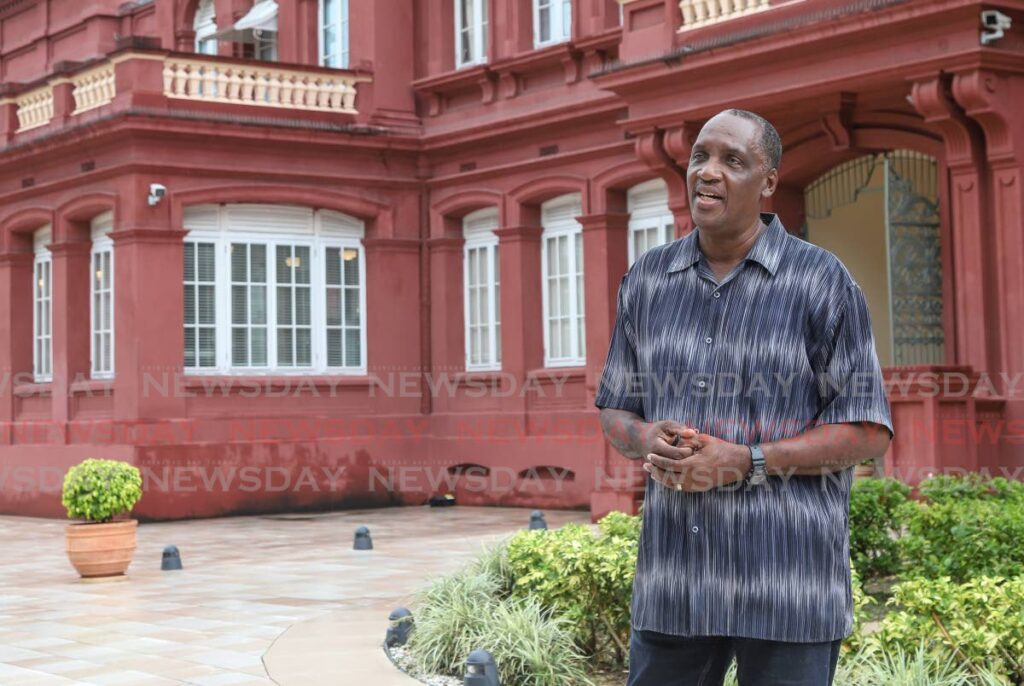
Thirty-two years ago, Brig Gen Ancil Antoine along with hundreds of soldiers, was thrust onto the frontlines of a battle.
This conflict was not fought in the jungles or deserts of a faraway nation, but the streets and alleys of their own country.
Antoine, then a major in the regiment, was one of several commanding officers who led soldiers to recapture buildings seized by Jamaat al Muslimeen insurgents in St Clair in the 1990 attempted coup.
These experiences and others are captured in his book, Attack with Full Force, which describes in vivid detail the strategies the military used to defeat the Muslimeen, and TT's history with insurgency.
Speaking with Sunday Newsday on Thursday, Antoine, 67, said the book, which contains maps, newspaper articles and photos of the soldiers, is intended to be more than a collection of his war stories, but rather a scholarly guide to one of TT's darkest hours.
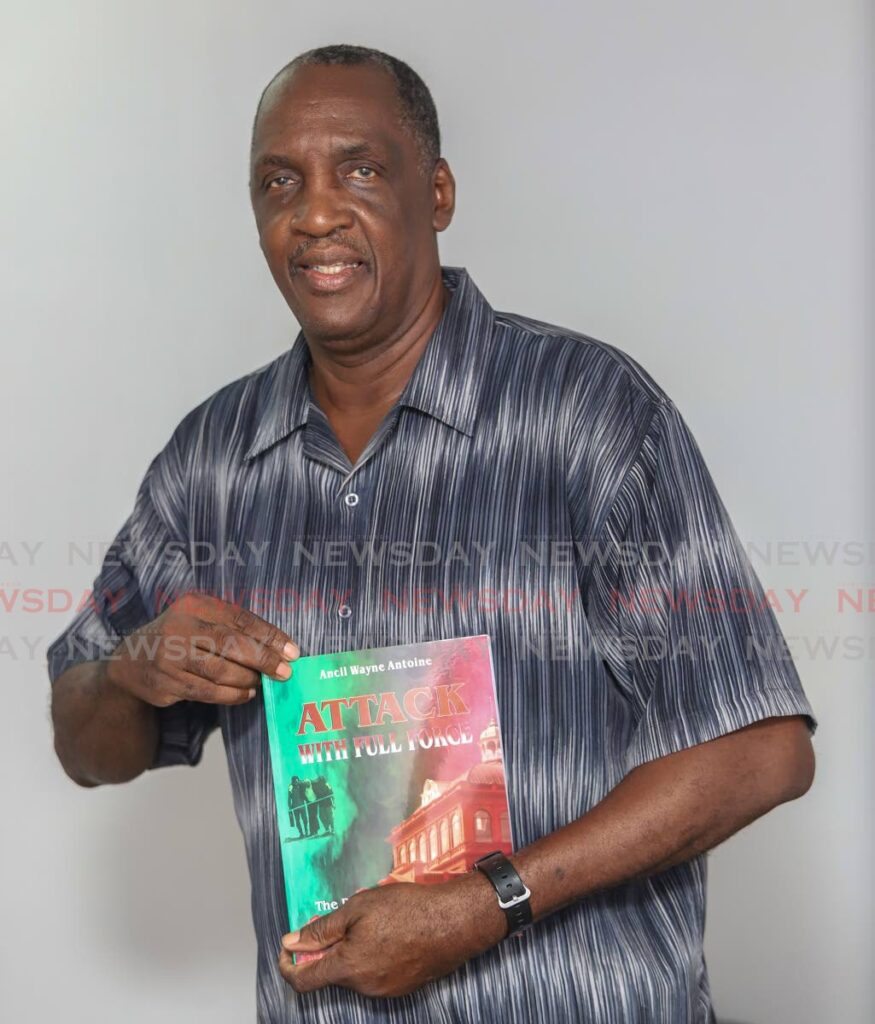
The book's title is a direct quote of Prime Minister ANR Robinson instruction to the armed forces while he was held hostage at the Red House with other parliamentarians and civilian staff.
Antoine said the attempted coup was a difficult chapter in TT's history, but he hoped the book would serve to inspire future generations to take pride in their country while informing them on the sacrifices made to protect the nation.
Antoine began writing and researching the book after his short stint in politics ended in 2020.
He said he originally considered writing a book on TT's military history from 1962-1990, but chose his experiences during the attempted coup first, given its significance in local history.
Antoine joined the military at 18, in 1973, three years after the infamous 1970 military mutiny. This mutiny, led by Raffique Shah and Rex LaSalle, led to the capture of Teteron Barracks from the army. Shah and LaSalle were sympathisers with the Black Power revolutionaries at the time.
The military base was later recaptured and Shah and LaSalle court martialled.
The government halted any recruitment in the army for three years.
Antoine was one of the first soldiers to enlist after the mutiny and said his decision was motivated by a need for adventure.
"I remembered seeing a newspaper article with the headline, '40,000 public servants: No promotion.' I looked at that and thought I didn't want to do any desk work for the rest of my life with no advancement.
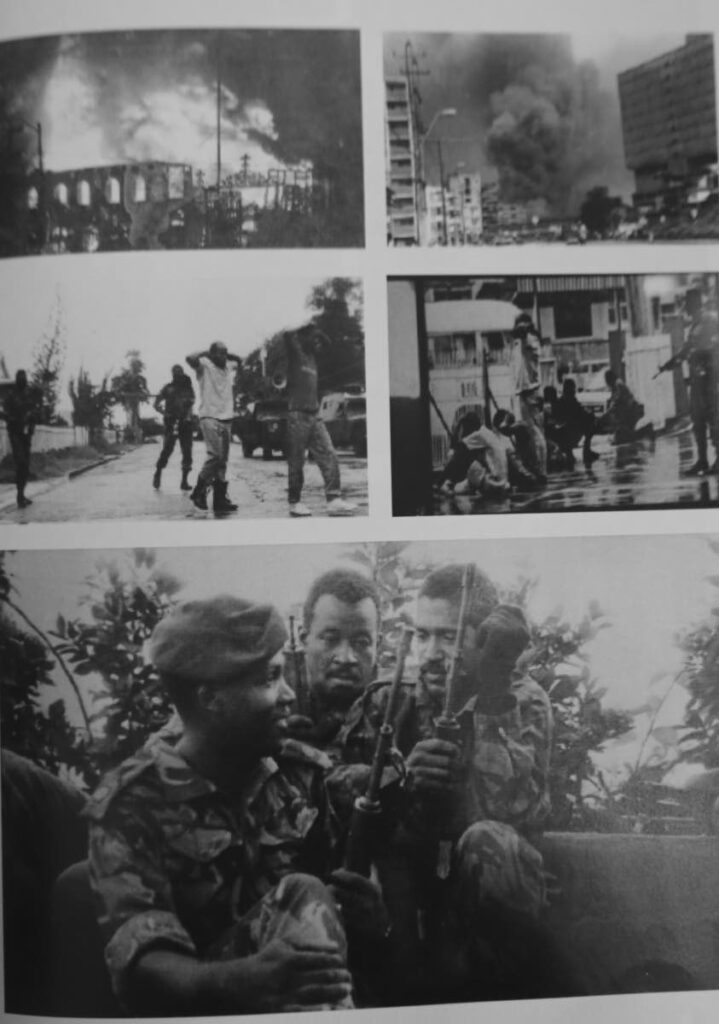
"I didn't have a cadet force background or anything like that. I joined because I didn't like desk jobs, just going from desk to desk, I wanted to be outdoors, I wanted to start a military career."
Antoine said at the time he remembered the government was considering removing the military altogether but realised the need for armed forces with the rise of the National Union of Freedom Fighters (NUFF), a radical leftist group which waged guerrilla warfare against the State from bases in the Northern Range.
Within days of graduating, Antoine and his comrades were sent to confront the insurgents in the forests. During this time, Antoine recalls some of his fellow soldiers being involved in shootouts with the NUFF members.
These confrontations and others, he said, sharpened his skills in counter-insurgency strategies to ensure the survival of his men almost two decades later, during the attempted coup.
On the evening of July 27, 1990, Antoine was at his Arima home preparing for a dinner hosted by acting President Emmanuel Carter.
President Noor Hassanali was visiting England at the time.
Antoine says sometime after 5 pm he received a phone call from an officer at President's House who told him several buildings in Port of Spain were under attack.
With no further details, Antoine contacted his commanding officer, Col Hugh Vidale, who instructed him to go to Camp Cumuto and assume control of Alpha Company.
Antoine's wife, who worked at the Bank of Commerce in San Juan, called and told him she would take their two daughters to stay with her father in Santa Rosa.
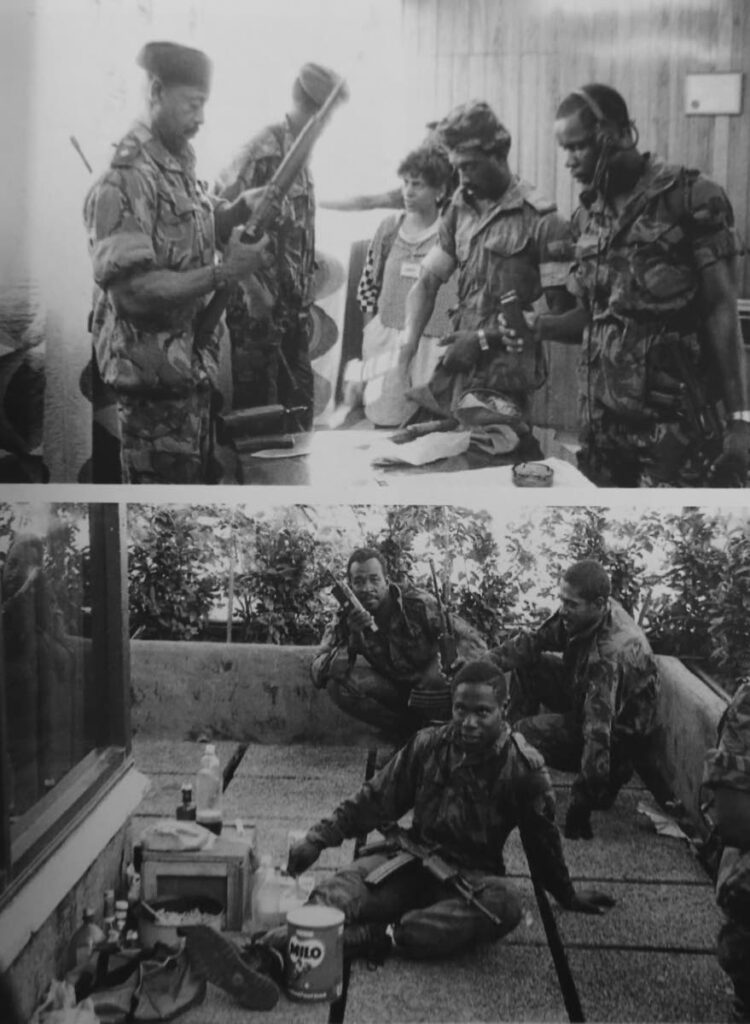
"They were concerned, but I won't say they were panicking, But they were concerned because I wasn't communicating with them. In 1990 wasn't the time of cellphones and social media."
Antoine would see his family again more than a week later.
After quickly changing out of his dinner wear and into combat fatigues, Antoine hurried to the Cumuto barracks, where he was met with a hubbub of activity as soldiers struggled to understand what was going on in the city.
As the senior officer he had the task of organising the men into groups.
What followed was a night of patrols and driving as Antoine and his men were tasked with closing down Piarco Airport and the Wallerfield airstrip as rumours circulated that external help for the insurgents was coming in by air.
By 10 pm he and his subordinates visited police stations along the East-West Corridor assuring them that the military was not aligned with the Muslimeen, despite rumours of an alliance.
With only two hours of sleep that night, Antoine continued to visit police stations from Morvant to as far east as Sangre Grande into Saturday morning.
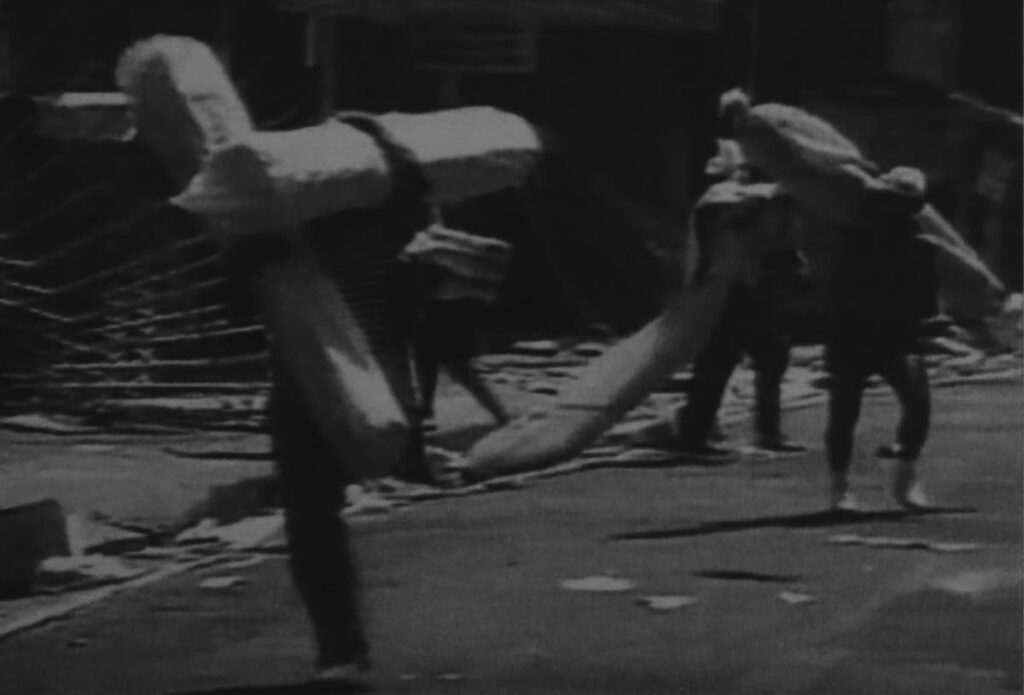
He later got instructions to bring his men into Port of Spain to assist with ongoing operations.
He says what he saw on the road approaching the city would remain with him forever.
"It was total chaos.
"From the time you're approaching Port of Spain you were seeing the smoke from the fires of the businessplaces that were looted.
"My soldiers were in combat mode. They were out in the east and we had military vehicles. They were coming down the road tactically, with weapons pointing at all directions so we were ready to combat when we came into Port of Spain."
Despite this intimidating sight, Antoine said his convoy encountered no resistance entering the city.
The problems began when they left their vehicles and began walking along Tragarete Road, near TTT and Radio Trinidad, on Maraval Road, which were held by insurgents. Antoine says he remembers the sound of gunfire echoing through the streets.
Drawing on his experience with past gunfights, he understood he was not in any immediate danger, but the soldiers under his command were not convinced.
"I told them that isn't effective fire. Effective fire was when bullets were hitting around you and you have to take cover. I told them that they would hear it all the time, it isn't affecting you and they should just go ahead.
"But they wouldn't move. I started to get angry, so I instructed them to go and take cover behind cars and other barriers. I instructed them to follow me, so we took off down Tragarete Road. So I had those 18 men following me."
Eventually when his subordinates got more accustomed to the situation, they led the way, with Antoine behind.
Not long after, they came under heavy fire from insurgents perched on the roof of Radio Trinidad.
Antoine joked that while the situation was serious, he was happy to see his soldiers' training take over as they took cover and returned fire.
For several minutes the soldiers and insurgents traded bullets, but because of the insurgents' elevated position, the soldiers were outmatched, until nearby residents came to their aid.
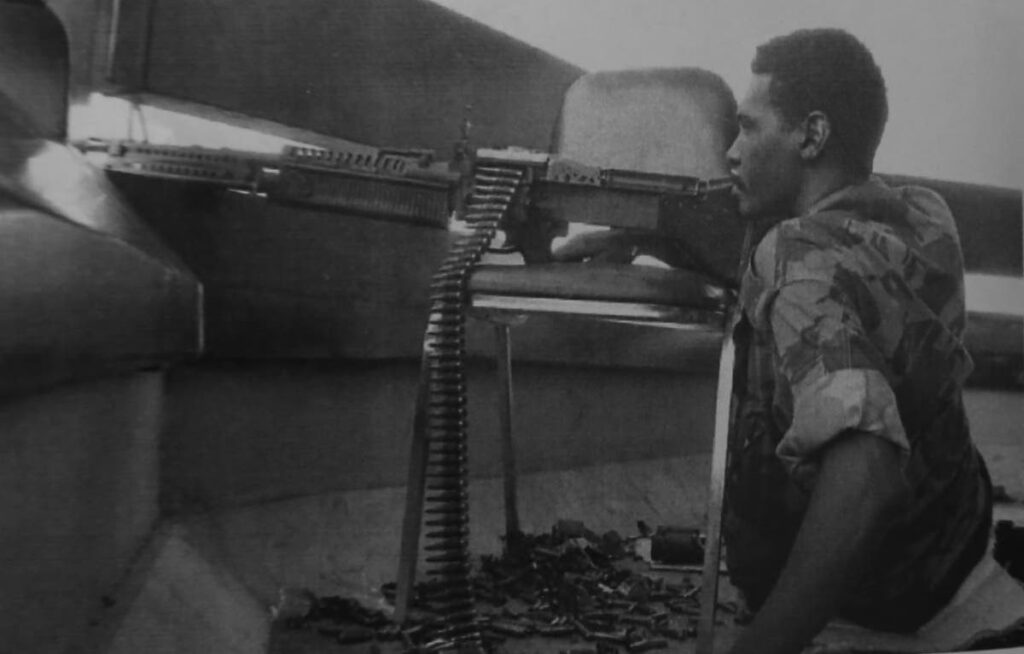
Antoine said the battle changed when a group of residents offered their homes to the soldiers to take on the insurgents more effectively.
"We went up to the bedrooms of some of these houses, where we came on the same level with Radio Trinidad, so now I could put riflemen in the houses, and by that time we turned the battle on them.
"The insurgents abandoned their positions because we were on an even footing with them, and that came about as a result of the support of the residents."
Antoine said the moment was an important one, as it showed that despite the dread of combat, the soldiers still had the support of the public they swore to protect.
In order to ensure the insurgents would not return, he and his men remained in their positions until Sunday morning.
He said the residents gave soldiers breakfast, and he was heartened by their support.
"We had it nice, because the residents gave us breakfast – things like bake and saltfish and tea and so on – and when we went to Radio Trinidad we realised (the insurgents had) abandoned their positions there."
Even with Radio Trinidad now under the control of the military, Antoine said there was another major obstacle.
The Tatil building, yards away, offered a good view of the surrounding area and was of high strategic importance. For this reason, on Sunday evening, Antoine assembled a scout team of only four men to enter the building to see if any insurgents were there.
It was a risky manoeuvre, as the men could have easily been ambushed, but fortunately, the building, which was in complete darkness, had also been abandoned by the insurgents.
"The soldiers had to go in there, and they couldn't use flashlights to give away their position, so they had to let their eyes get used to the darkness.
"I was relieved when I heard that, because they said we had a nice view of the area.
"When I saw the position I said, 'Good, bring up the heavy weapons.' We had an M60 a belt-fed machine gun."
With a good vantage point of TTT's studios and superior firepower on their side, Antoine said victory was essentially guaranteed.
But even with this advantage, the path would not be without incident.
Antoine said the attempted coup was the first combat experience for almost all of the men under his command, who were young and eager to try new weapons.
In one incident on Monday morning he remembers taking a quick break from his command to shower at the home of a nearby resident.
Shortly after undressing he heard an explosion. He got dressed and returned to his men.
"I realised they fired the B-300 rocket launcher at TTT and it didn't arm the rocket properly, so it went into the ground. It bored a hole in the ground, so by the time I got there, there was a ball of fire on Channel Nine studio burning.
"I was mad, I cuss them. But they never saw combat before, they never had chance to fire all those weapons before in a combat situation."
This would not be the last mishap with heavy weapons before the end of the insurrection, as Antoine remembers another incident when he had to reprimand a soldier for the improper use of a machine gun. Following the style of 80s action hero Rambo, Antoine said one soldier tried firing a heavy machine gun from his waist.
"Instead of using the tripod, he asks another soldier to hold him down for balance.
"When I saw that I start to cuss.
"I wanted them to stop firing because in my mind it wasn't just the Muslimeen in TTT, there were all the hostages in there too, and they were endangering everyone's lives."
In another instance, a soldier identified as Capt Clarke fired a rocket at TTT on Wednesday.
Antoine said the soldier was reprimanded for excessive force, which was unnecessary as the insurgents surrendered hours later, that afternoon.
He was relieved the insurrection ended without further bloodshed, but Antoine's work was far from over, as he and other soldiers were tasked with gathering weapons and helping investigators gather evidence.
In his book Antoine says one major flaw on the part of the Muslimeen was their underestimation of TT's military. He said while the regiment may have begun as a semi-ceremonial entity in 1962, it gradually evolved to a professional fighting force after the 1970 insurrection.
With everything from improved Israeli weapons to advanced training for officers abroad, Antoine argues that the military was a formidable force against any threat.
He notes that the book itself is the first step towards documenting the efforts and sacrifices of those on the frontlines during the attempted coup, and such records were valuable not only for paying respects but as a learning resource for future generations.
Referring to the historic battle of 300 Spartans against the armies of the Persian empire in ancient Greece, Antoine said it was important for the public to understand acts of heroism in their own country.
"We know about battles like that today because it was recorded. If it wasn't recorded nobody would have known about that.
"That's why maps are included in this book as well, to show the Muslimeen's location in the Red House and location of the soldiers, so it can be studied and critiqued by the military to decide what can be improved."
After he retired from the military, Antoine worked as director general of the Inter-American Defense Board in Washington, where he oversaw the removal of landmines from Central and South America.
After his return to Trinidad in 2011, he began working with the PNM and was later appointed Minister of Public Utilities after the party's victory at the 2015 general election.
Even with these different titles and roles, Antoine says leading his soldiers through the alleys and streets of Tragarete Road during the 1990 attempted coup is one of his most defining moments as a leader.
He says while the attempted coup is often remembered as a frightening part of TT's history, it should also be remembered for the unity demonstrated by communities and individuals in the face of grave adversity.
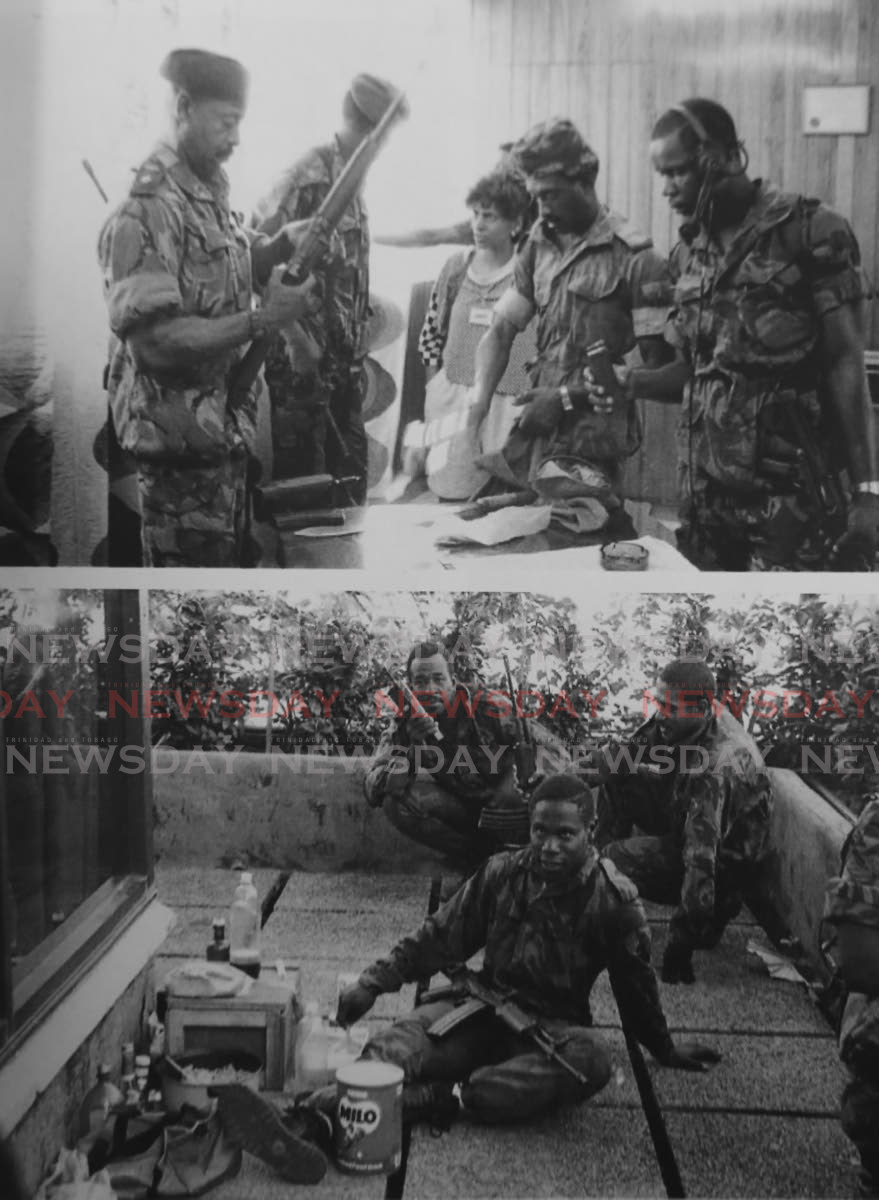
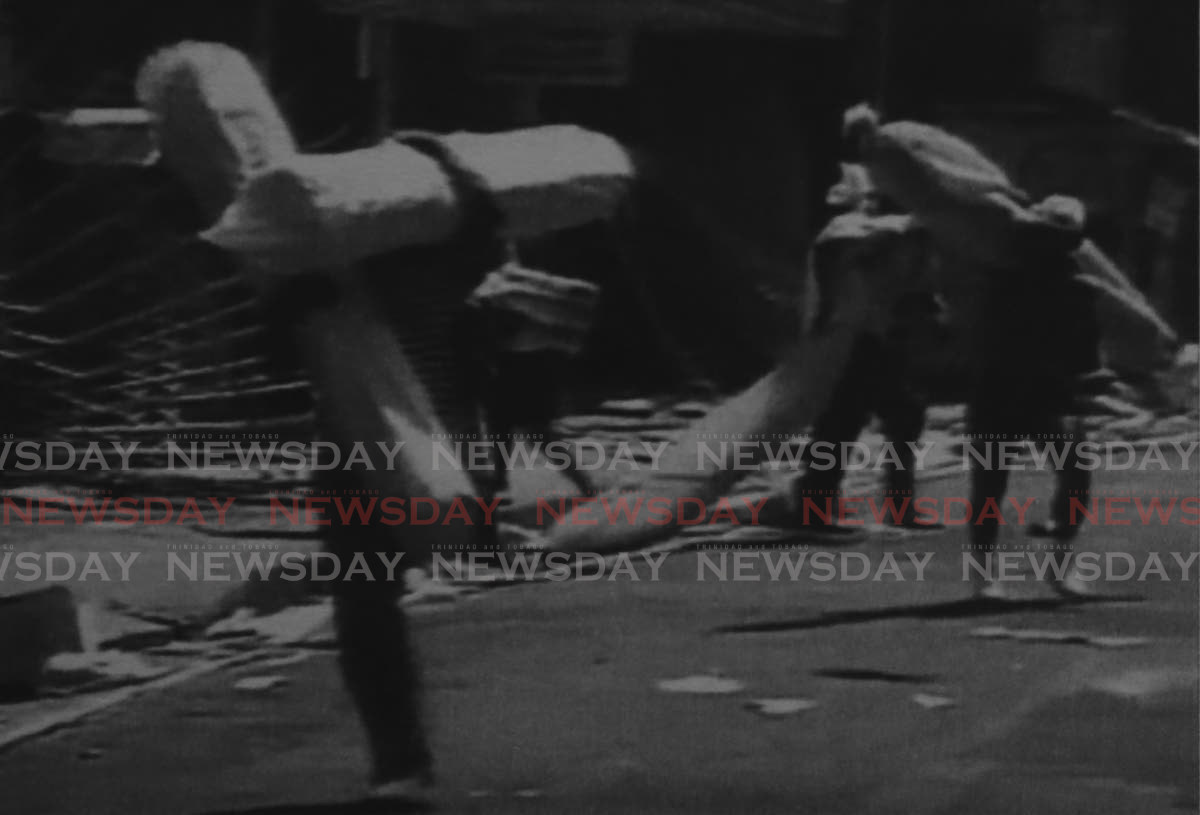
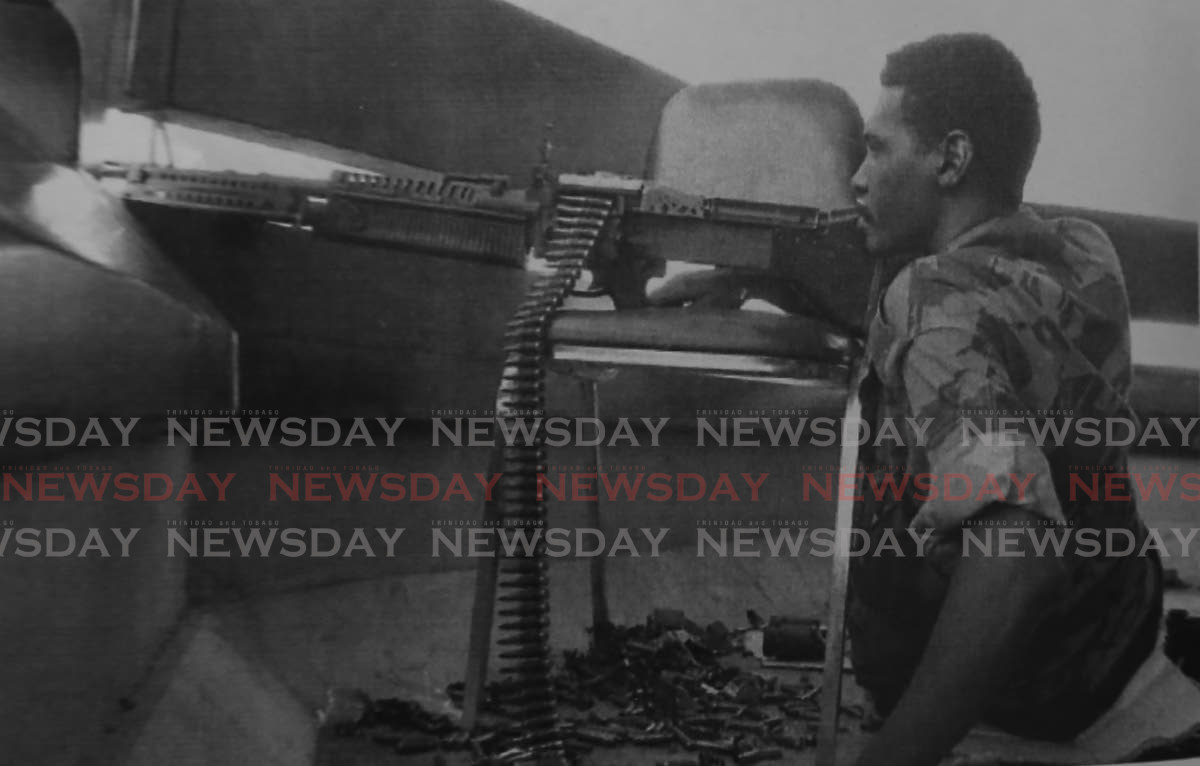
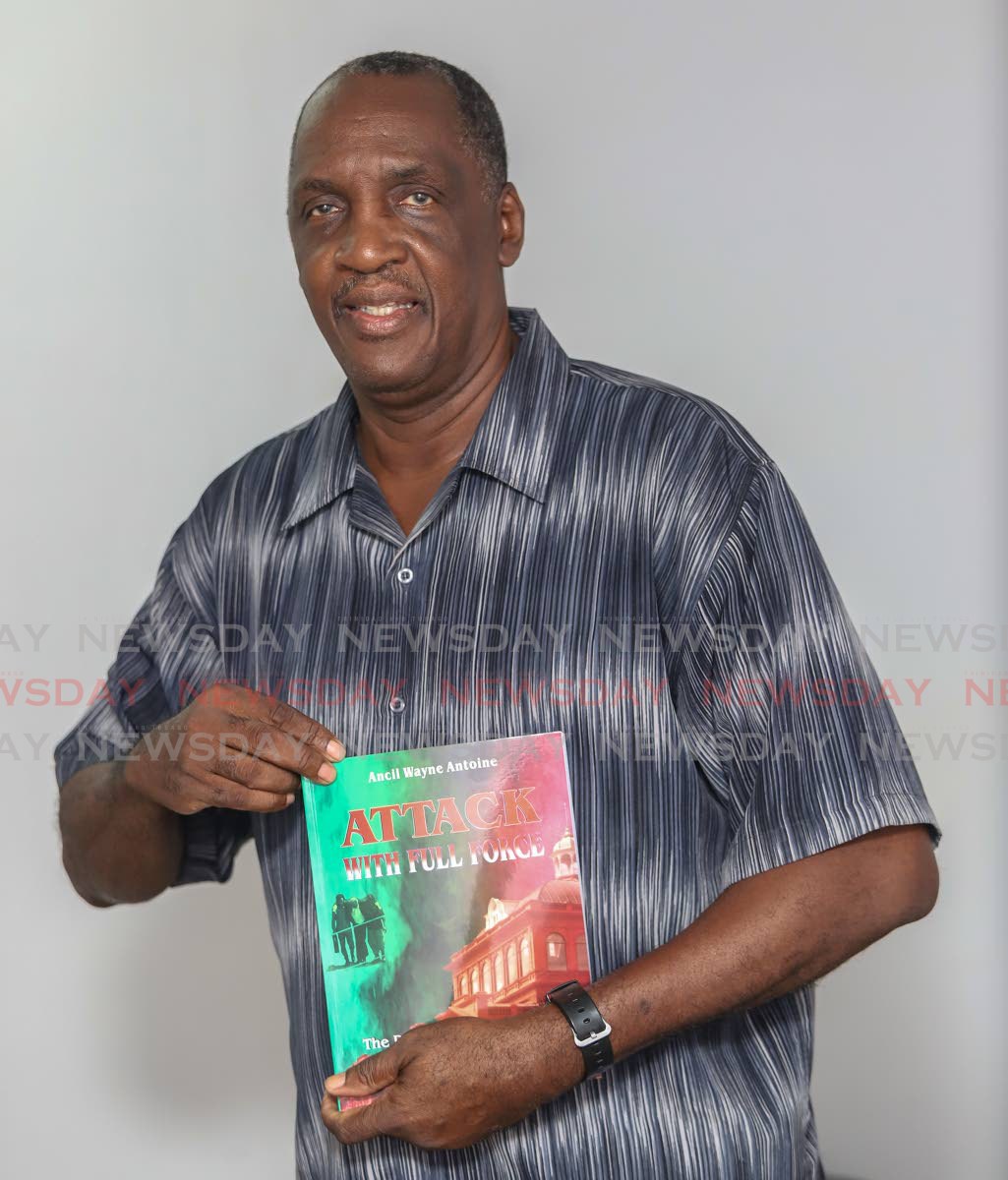


Comments
"1990, through a soldier’s eye"